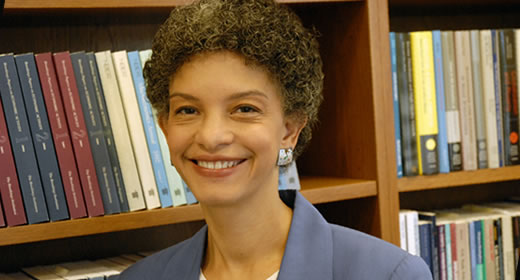
Dear Alumni and Friends,
Earlier this month, I traveled to Washington, DC to celebrate the unveiling of a new statue at the Capitol Rotunda: that of our 38th President, Gerald R. Ford (Class of ’35). Three of Ford’s children were there—Susan, Steven, and Michael—as were dozens of our nation’s most prestigious elected officials (from both sides of the aisle) who commended Ford’s bipartisan leadership during a tumultuous time in America’s history.
In many ways, the challenges Ford faced during his administration parallel those we face today: economic recession, budget deficits, energy challenges, Middle East conflict, and partisan political divisions. Informed by his twenty-five years in Congress (eight of those as House Minority Leader), Ford’s brief but remarkable Presidency demonstrated thoughtful, compassionate, bipartisan leadership that helped steer our nation through those tough times.
On July 14th (what would be President Ford’s 98th birthday), hundreds of Ford School students, alumni, and friends will toast his legacy and leadership at alumni-led gatherings in major cities across the nation. We invite each of you to join us for this first annual Ford School Spirit Day. For alumni, this is a great way to catch up with school friends.
Our phenomenal Class of 2011 enjoyed some wonderful celebrations of their own during graduation. In addition to the traditional student picnic and open house events, Michigan Governor Rick Snyder delivered U-M’s commencement address, and the Ford School was thrilled to have international journalist and foreign policy analyst Robin Wright as our commencement speaker.
The Ford School celebrates a few milestone anniversaries this year—the 30th anniversary of the school’s participation in the Public Policy and International Affairs (PPIA) program, the 10th anniversary of the school’s joint doctoral degree program, and the 5th anniversary of the school’s Science, Technology, and Public Policy (STPP) program.
- The Ford School’s PPIA program has provided free pipeline training to more than 600 underrepresented minorities who have gone on to launch successful careers at the United Nations, the U.S. Department of State, the Government Accountability Office, and dozens of other public and private policy institutions.
- The school’s joint PhD program has awarded 37 degrees in public policy and economics, sociology, and political science—doctors of philosophy who now analyze and refine policies at private sector think-tanks, prestigious postdoctoral fellowship programs, and major public and elite private universities around the nation.
- The school’s Science, Technology, and Public Policy program has conferred 27 graduate certificates to students in a range of disciplines such as public health and medicine, natural resources and the environment, engineering, chemistry, and more. These graduates now work to create well-informed science and technology policies in health, the environment, energy, and technology.
Our undergraduate degree program is only in its fourth year, but like the joint PhD program, this innovative degree has is a wonderful complement to the Ford School’s long-standing master’s in public policy and master’s in public administration programs. Building a liberal arts degree for undergraduates was a big endeavor, and quite different from the professional, graduate policy education we’ve offered for so many decades. However, the first few classes of graduates have been so impressive that they've very quickly become an integral part of our extended family.
We have so many to thank for all of these programs—and all they’ve accomplished—but I’d like to close by offering my heartfelt thanks to the founding faculty directors and co-directors, who will take a well-earned reprieve this summer as newly appointed faculty assume leadership of these programs. John Chamberlin (founding director of the bachelor’s program), Mary Corcoran (founding director of the joint doctoral program), and Jim Duderstadt, and Shobita Parthasarathy (founding co-directors of the STPP program)—on behalf of the entire Ford School community, please accept our warmest thanks for all you’ve done to create such a lasting legacy at the Ford School.
Sincerely,
Susan M. Collins
Joan and Sanford Weill Dean of Public Policy